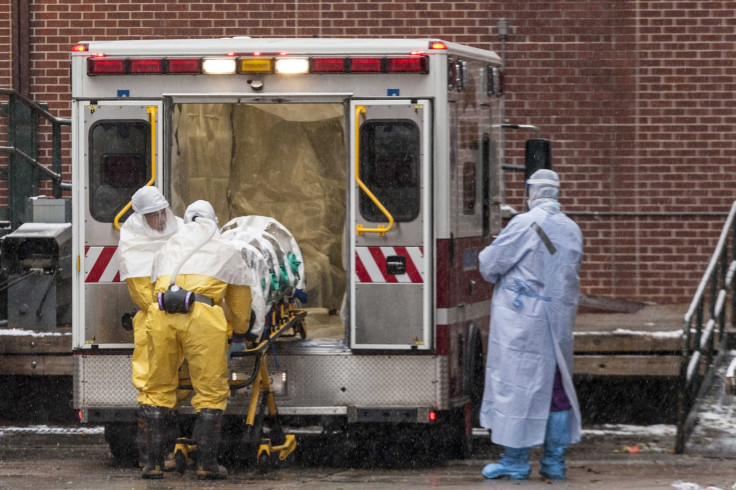Martin Salia, Sierra Leone Doctor Who Died Of Ebola, Faced Delays In Treatment

Dr. Martin Salia, who died of Ebola on Monday, was delayed full treatment for nearly two weeks in Sierra Leone, making it nearly impossible to save him, according to reports citing doctors who treated him in the U.S. Salia reached the University of Nebraska Medical Center in Omaha on Saturday, 13 days after contracting the virus.
The Sierra Leone doctor, who initially tested negative for the virus, had to wait three days for another test that confirmed he had Ebola. He then waited another five days before being flown to the U.S. for treatment. The delay ensured kidney failure and made it difficult for him to breathe, The Associated Press (AP) reported. His death is the second one in the U.S. due to the virus, which has killed over 5,000 people in West Africa. Doctors at the Omaha hospital reportedly said that they had tried various means to save him, without success.
“We are reminded today that even though this was the best possible place for an Ebola patient to be … even the best technologies that we have at our disposal are not enough to help these patients once they have reached a critical threshold," Dr. Jeffrey Gold, chancellor of the University of Nebraska Medical Center, said, according to NBC News.
The medical team at the hospital pumped salt water and other vital compounds into Salia to save his kidneys, gave him dialysis, and helped him breathe with a ventilator, NBC News reported. The doctors also gave him blood serum with antibodies collected from a survivor, to help fight off the virus, as well as an experimental drug.
"We used every possible treatment available to give Dr. Salia every possible opportunity for survival," Dr. Phil Smith, who successfully treated two Ebola patients -- Dr. Rick Sacra and NBC camera operator Ashoka Mukpo -- said, according to NBC News, adding: "As we have learned, early treatment with these patients is essential. In Dr. Salia's case, his disease was already extremely advanced by the time he came here for treatment."
Sierra Leone’s government said that it would obtain a full medical report from the hospital where he was treated in the country, and conduct an extensive investigation into Salia’s case, AP reported.
"At this point, we can't say for certain whether it was this misdiagnosis or not that led to his death," Theo Nicol, the deputy information minister of Sierra Leone, said, in a statement, according to AP, even as his government questioned if, "the strain of the 16-hour trip could have had a negative impact on his recovery."
© Copyright IBTimes 2025. All rights reserved.






















